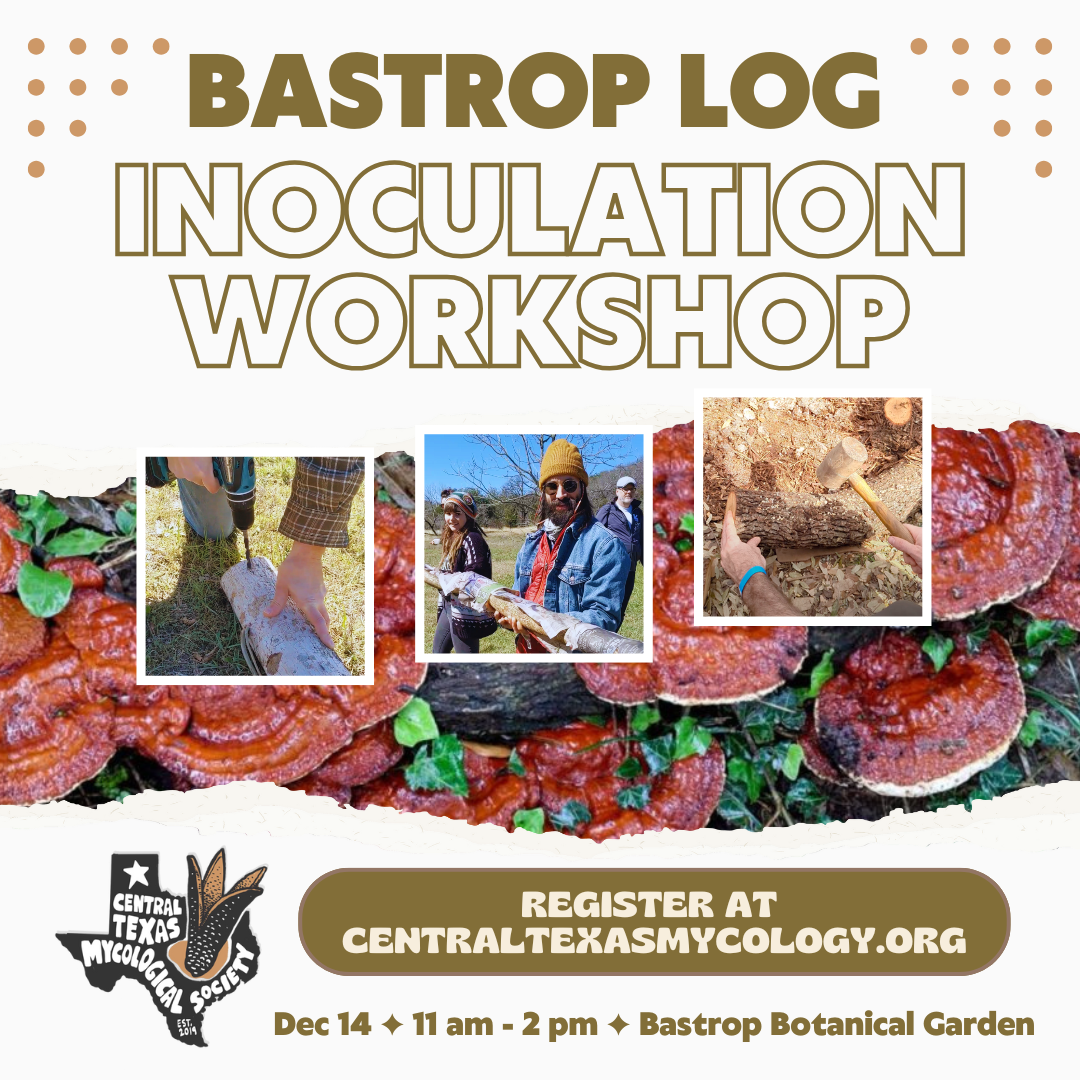BASTROP: Log Inoculation Workshop
BASTROP: Log Inoculation Workshop
When: Saturday, December 14, 2024 from 11 a.m. - 2 p.m.
Where: Bastrop Botanical Garden
Cost: $7+ Sliding Scale Donation
What to Bring: Freshly Cut Hardwood Log (Optional, See More Details Below)
This will be a hands-on workshop and you will get to participate in the different steps involved in inoculating the logs. At the end, everybody who brought their own log, gets to take their inoculated log home. Participants should be prepared to operate a drill, mallet, and carry their own hardwood log (recommended size for easy handling is 3”-7” diameter and two or three feet in length).
Mushroom log inoculation is an efficient way to grow edible and medicinal mushrooms. This workshop is a very hands-on process where we will handle and inoculate logs with reishi spawn. These mushrooms help to decompose tree limbs that came down in the deep freeze this winter and reduce potential wildfire fuel which is really important in this bioregion.
Do you also want your own log to tend and harvest at home? If you are interested in bringing a log home with you, please bring your own hardwood log and we will work with you to inoculate it. We also ask that you bring a cordless drill and a 5/16” drill bit.
In this workshop, you will learn the process used to inoculate logs with mycelium plug spawn (made from 1/4” hardwood dowel pins) and we will also discuss other types of spawn used in previous experiments at the preserve. These techniques apply to all types of mushrooms, although our focus will be the Oyster mushrooms. We will cover wood selection, log preparations, spawn handling, inoculation, sealing, log storage and care. Join us and learn about the many mushrooms that can become part of your system through this method.
WHAT TO BRING:
Closed toe shoes
Water
A cordless drill with charged battery and a 5/16” drill bit (either a spade bit or twist drill bit will be fine)
A mallet or hammer (a rubber or wooden mallet may be better)
We will have some tools you can borrow.
AND if you want to grow these at home, your own hardwood log: Oak, Sycamore, Pecan, or Mesquite Cedar, Pine, Juniper and other conifers will not work for this
FAQs
How long will it take my log to fruit and how long will it last?
Expect to see your first fruitings within 5-8 months of class. Logs should fruit for about 1 year for every inch of diameter in the log (3-7 years depending on conditions and wood). Often, logs give several fruits each season.
What kind of environment do I need to grow my logs successfully at home?
Their ideal environment will be shady with good circulation and near a water source, such as under a tree or on the south facing side of a house. We have had class participants successfully fruit logs on apartment balconies, in their home garden, and in their woods. Logs are know to be very low maintenance! In class we will talk about strategies to make sure your log gets the light, air, and moisture it needs to successfully fruit.
Do I need a large vehicle to transport my log home?
You may consider bringing a trashbag to keep your vehicle clean during transport. Logs are about 2 feet long, and 3 to 6 inches in diameter. They should transport well in even the smallest car trunk.


